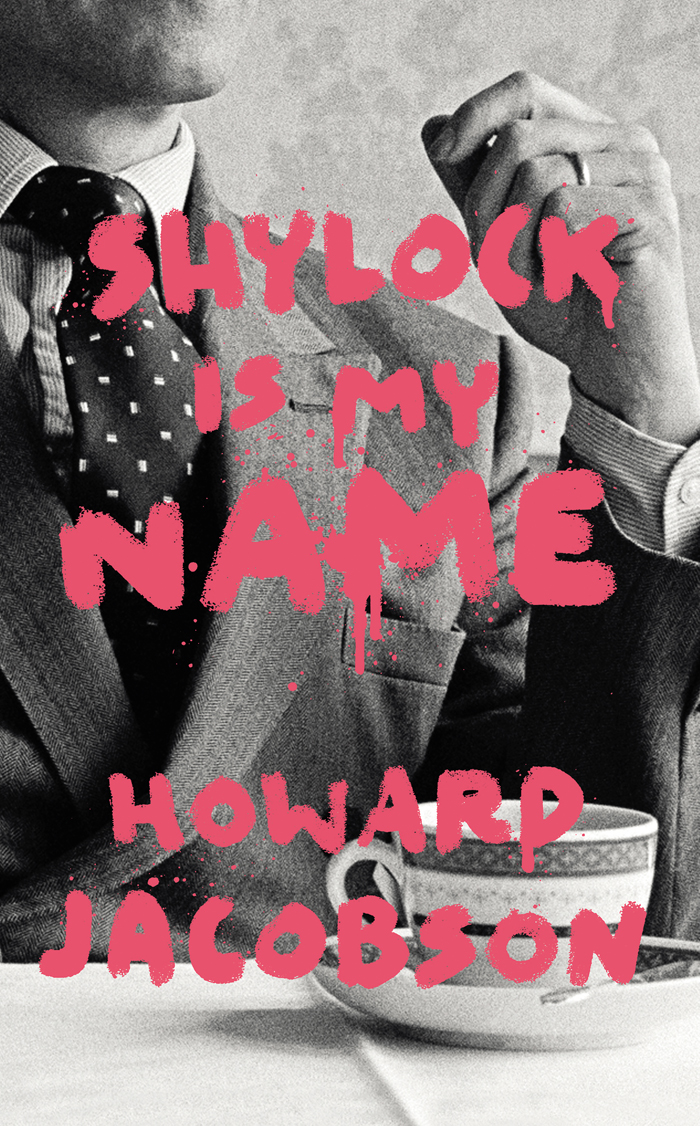Review: Shylock is My Name – Howard Jacobson’s gift for comedy glisters pure gold
 Howard Jacobson was writing J, a novel about a dystopic (non-) Jewish future, when publisher Hogarth invited him to join a relay team retelling Shakespeare in contemporary settings. He was assigned The Merchant of Venice – an inspired choice that allowed him to tell the story from Shylock’s perspective. But Jacobson’s blinder, proving again his extraordinary inventiveness, is to have Shylock slip into present-day Cheshire to share the narrative with his 21st-century counterpart Simon Strulovitch, and chew over his own story as told by Shakespeare. Shylock arrives without fanfare as the story opens, not in Venice but in a bleak Jewish cemetery in Manchester, the city where Jacobson was raised. He is communing with his long-dead wife Leah, “buried deep beneath the snow”. So Shylock engages the reader’s sympathy: within this take on the play is a meditation on loss, as well as scabrous satire on the materialistic celebrity denizens of Cheshire’s ‘Golden Triangle’.
Howard Jacobson was writing J, a novel about a dystopic (non-) Jewish future, when publisher Hogarth invited him to join a relay team retelling Shakespeare in contemporary settings. He was assigned The Merchant of Venice – an inspired choice that allowed him to tell the story from Shylock’s perspective. But Jacobson’s blinder, proving again his extraordinary inventiveness, is to have Shylock slip into present-day Cheshire to share the narrative with his 21st-century counterpart Simon Strulovitch, and chew over his own story as told by Shakespeare. Shylock arrives without fanfare as the story opens, not in Venice but in a bleak Jewish cemetery in Manchester, the city where Jacobson was raised. He is communing with his long-dead wife Leah, “buried deep beneath the snow”. So Shylock engages the reader’s sympathy: within this take on the play is a meditation on loss, as well as scabrous satire on the materialistic celebrity denizens of Cheshire’s ‘Golden Triangle’.
For Jacobson, the beating heart of Shakespeare’s Shylock is not in the defiant speeches he throws in the faces of the Christians who bait him, but in his response to the news that his errant daughter Jessica has exchanged his ring for a monkey. “I had it of Leah when I was a bachelor. I would not have given it for a wilderness of monkeys.” Around these lines Jacobson builds his case for Shylock in love, bereaved – and the lone parent who cannot give his daughter what she needs.
Strulovitch, visiting his mother’s grave recognises Shylock and invites him home. And so begins their relationship, played out in a succession of conversations, the pair ensconced in armchairs, cradling brandy, comparing notes on errant daughters, discussing every move and motive and most of the dialogue that drives Shylock in Shakespeare’s play. They analyse the contradictions driving Strulovitch, “a rich, furious, easily hurt philanthropist with on-again off-again enthusiasms”, and the butt of antisemitism, above all from the effete aesthete D’Anton (Jacobson’s Antonio) a rival art collector,Strulovitch, visiting his mother’s grave, recognises Shylock and invites him home. And so begins their relationship, played out in a succession of conversations, the pair ensconced in armchairs, cradling brandy, comparing notes on errant daughters, discussing every move and motive and most of the dialogue that drives Shylock in Shakespeare’s play. They analyse the contradictions driving Strulovitch, “a rich, furious, easily hurt philanthropist with on-again off-again enthusiasms”, and the butt of antisemitism, above all from the effete aesthete D’Anton (Jacobson’s Antonio) a rival art collector who has made smiling sorrowfully at his own Weltschmerz into an art form.
As in the play, the Christians revel in their antisemitism, even vying to top each other’s ‘Jewpithets’ by referring to Strulovitch as “moneybags”, “thick-lips” and “hook-nose”. Strulovitch is arguably worse off than Shylock: his wife is trapped by a stroke in a useless body. His daughter Beatrice, of an age with Jessica, is vividly present, though her father dreads her frequent absences as she threatens to spend the night with a succession of unsuitable men – none of them Jewish, of course. Jessica is absent from the novel, because Jacobson has Shylock caught as if in aspic at the end of Shakespeare’s story. As Shylock says, for him there is no Act Five (his last appearance is leaving court in Act Four).
Jacobson’s gift for comedy glisters pure gold as he makes merciless fun of the self-obsessed celebs surrounding his Portia – a reality TV hostess and plastic surgery addict called Plurabelle, whose full name is Anna Livia Plurabelle Cleopatra A Thing of Beauty is a Joy Forever Christine. And there’s more fun with names. Enter Gratan Howsome, politically incorrect footballer of little brain with the hots for Jewesses, and hunky but vacuous arm-candy Barnaby, Plurabelle’s squeeze and D’Anton’s protégé.
If you know your Shakespeare you’ll hug yourself as you work out Jacobson’s deliciously witty reworking of his plot lines. In a twist on the casket scene, Plurabelle tests her suitors by having them choose between her three cars – a Merc, BMW or humble Beetle. And circumcision is central to an ingenious if potentially grisly plotline. Jacobson plunders his source text and other authors for quotes, sometimes bending their words, always putting them to great use. He grants Shylock his Act Five, calling his last chapter just that. But even this may not be his final act, for if he is Strulovitch’s Shylock, who is to say where he has appeared before or might appear again? Hogarth’s commission is a gripping addition to Jacobson’s writing on what it is to be Jewish.
By Judi Herman
Shylock Is My Name by Howard Jacobson, Hogarth Shakespeare, £16.99. Read Judi Herman's interview with Howard Jacobson over on the JR website, first published in the January 2016 issue of Jewish Renaissance.
Howard Jacobson will talk about his book at Jewish Book Week on Sunday 28 February, 5pm, at King’s Place. www.jewishbookweek.com